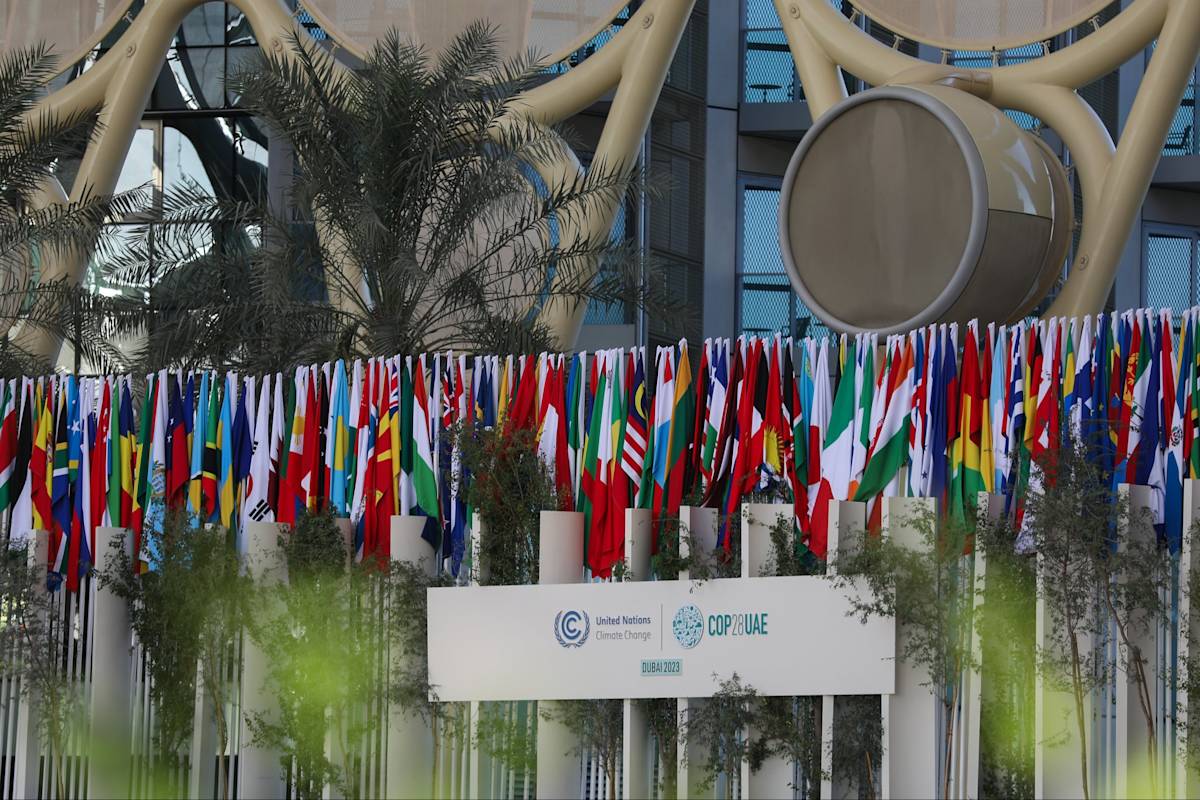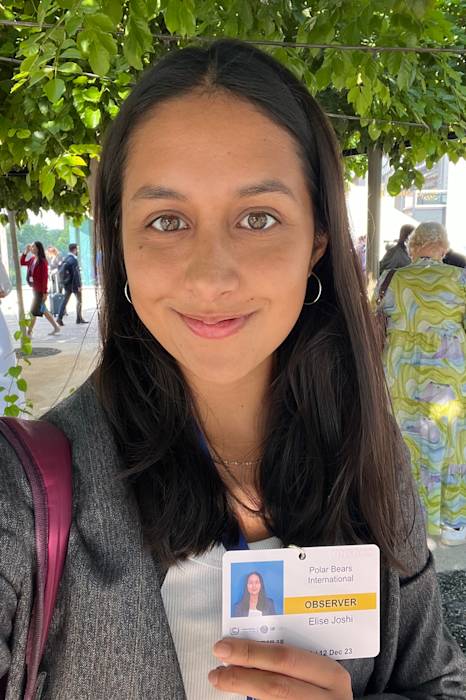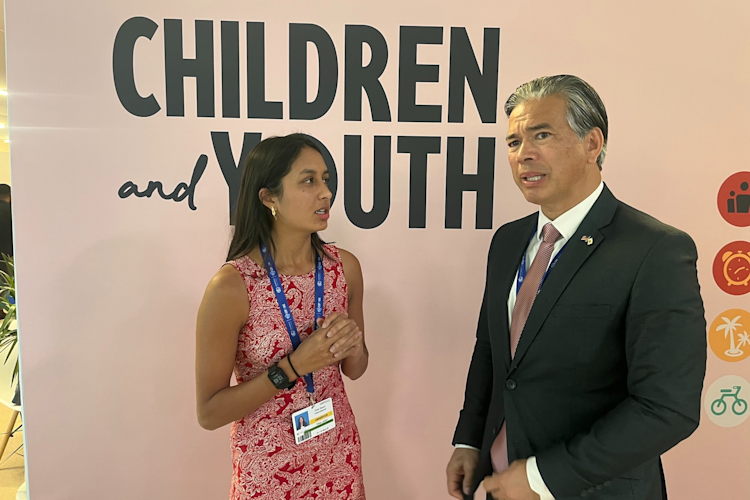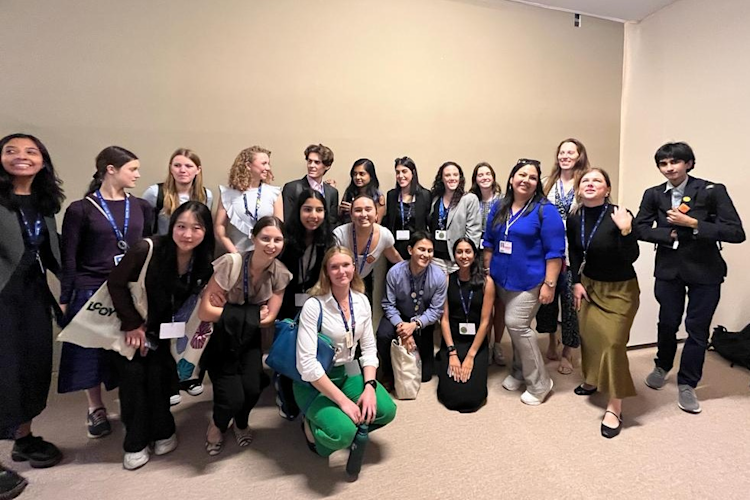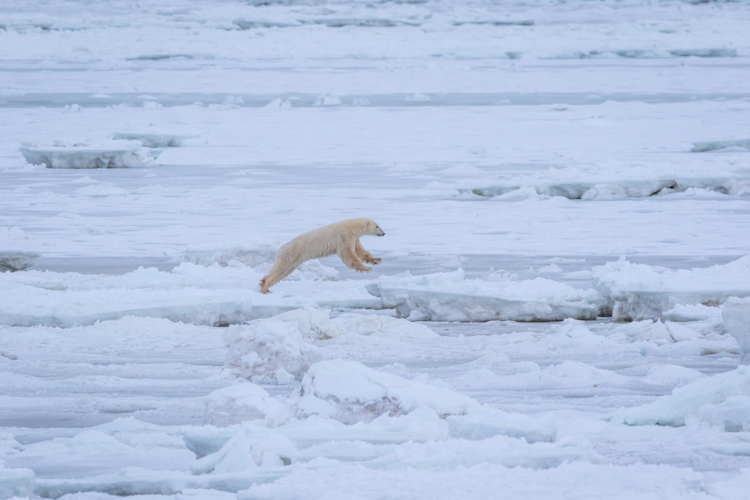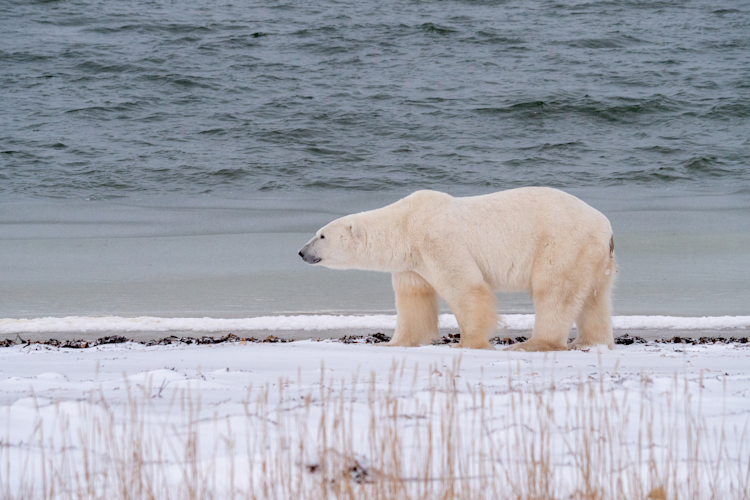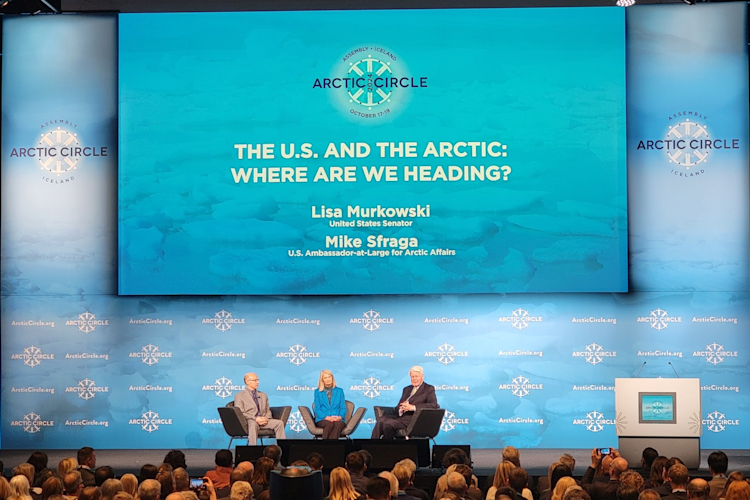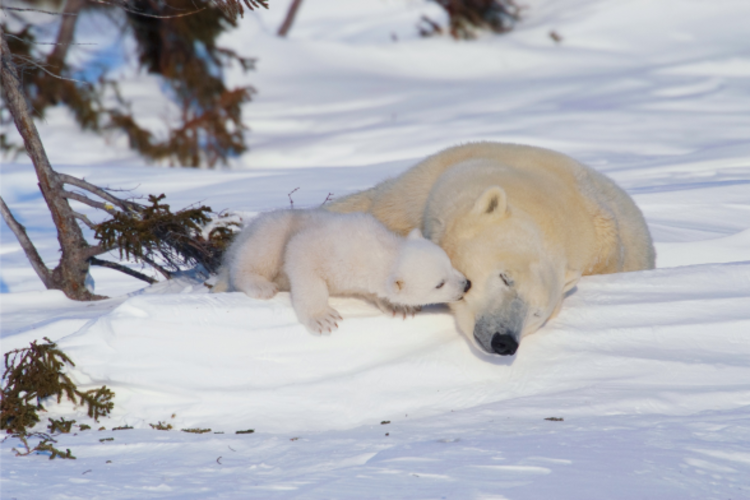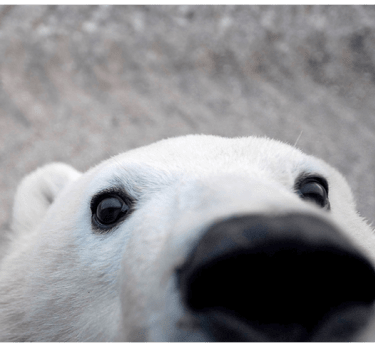Dubai in the United Arab Emirates may be thousands of miles from polar bears hunting on the sea ice, but the conversations unfolding there last December are intimately tied to the fate of this Arctic ecosystem. The 28th gathering of the U.N. Climate Talks (COP28) brought together world leaders from nearly 200 countries as well as community and young leaders, Indigenous Peoples, scientists, industry representatives, corporations, and nonprofits.
Polar Bears International is an accredited observer organization to the U.N. Climate body. This year we were proud to support Elise Joshi, a young leader from the United States, in her attendance of COP28. In this Q&A, Elise shares her experience and gives recommendations for how all of us can engage in meaningful climate action.
Q: Let’s begin with a little about you. Tell me about yourself and about your relationship to the climate community?
My name is Elise Joshi. I am 21 years old, and I am a recent college graduate in Environment Economics and Policy. I run an organization called Gen-Z for Change which is a digital organizing group that uses tools, code, creators, and coalitions to drive young people to take action online that makes an impact on the ground.
Climate is one of our main priorities, and it is one of my personal priorities. My interest in social justice work has always come from a climate lens. Growing up in the Bay Area, I’m used to wildfire season being an expectation. I’ve always had school days off because of 300+ Air Quality Index ratings (the very unhealthy to hazardous range). I went from experiencing climate impacts to learning about the scientific, social, and economic dimensions of climate change in college. I knew my life’s work had to be around organizing for a more sustainable and just future.
